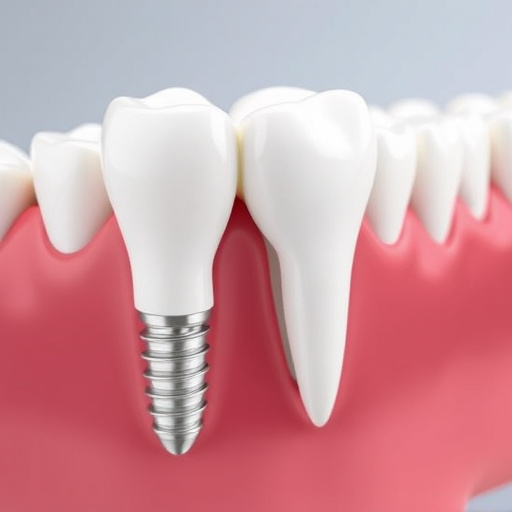Special needs dentistry requires a collaborative team of dental professionals to cater to complex oral health needs of individuals with disabilities. This involves tailored assessments, adaptive techniques, and preventive education. The multi-disciplinary approach includes dentists, hygienists, specialists, therapists, and social workers, ensuring holistic care that improves quality of life through precise diagnoses and treatment plans.
Special needs dentistry is a specialized field requiring multi-disciplinary collaboration to meet complex oral health demands. As the population ages and more individuals live with diverse disabilities, understanding these unique needs becomes paramount. This article explores the essential role of a multi-disciplined team in providing comprehensive care for patients with special needs. We delve into their respective roles, responsibilities, and how collaborative efforts enhance patient outcomes, ensuring improved access to quality dental care.
- Understanding Special Needs Dentistry Demands
- Multi-Disciplinary Team: Roles and Responsibilities
- Collaborative Care: Enhancing Patient Outcomes
Understanding Special Needs Dentistry Demands

Special needs dentistry is a complex field that demands a multifaceted approach, requiring collaboration between various dental professionals and specialists. Understanding the unique challenges associated with providing dental care to individuals with special needs is paramount. These individuals often present with diverse oral health issues, ranging from physical disabilities and sensory impairments to behavioral disorders and cognitive differences.
Meets the demand for specialized care through comprehensive assessments, tailored treatment plans, and adaptive techniques. For instance, a patient with limited mobility might require modifications in the dental chair or specific tools to accommodate their needs, ensuring comfort and safety during procedures such as wisdom tooth removal or fitting dental crowns. Preventive dentistry is also a cornerstone, focusing on educating patients and caregivers on oral hygiene practices to forestall issues before they arise, fostering long-term oral health and well-being.
Multi-Disciplinary Team: Roles and Responsibilities

In special needs dentistry, a multi-disciplinary team plays a pivotal role in providing holistic and comprehensive dental care tailored to patients with diverse requirements. This collaborative approach ensures that every aspect of oral health is addressed, from preventative measures to complex procedures like fitting dental crowns. The team typically includes dentists, dental hygienists, specialists such as orthodontists or endodontists, speech therapists, and social workers. Each member brings unique expertise, contributing to a comprehensive understanding of the patient’s needs.
The multi-disciplinary team’s roles and responsibilities are diverse and interconnected. Dentists focus on general oral health assessments and treatment planning, while dental hygienists specialize in preventive care and education. Specialists like orthodontists address bite issues or misalignments, whereas endodontists handle complex root canal procedures. Speech therapists assist with communication challenges related to oral motor skills, and social workers provide support for the patient’s overall well-being and family dynamics. Together, they collaborate to offer not just emergency dental care but also long-term solutions that enhance the quality of life for individuals with special needs.
Collaborative Care: Enhancing Patient Outcomes

In the realm of special needs dentistry, collaborative care is a game-changer that enhances patient outcomes significantly. It involves a multi-disciplinary approach where various healthcare professionals work together to address the unique challenges faced by patients with special needs. This holistic strategy ensures comprehensive care, encompassing not just oral health but also the patient’s overall well-being. By fostering strong partnerships between dentists, therapists, and caregivers, collaborative care enables tailored treatment plans that cater to each individual’s specific requirements.
This integrated model of care offers numerous advantages. For instance, it facilitates better communication among team members, leading to more precise diagnoses and effective treatment strategies. Moreover, it allows for the simultaneous addressing of both physical and emotional needs, ensuring a nurturing environment that promotes patient comfort and cooperation. Whether it’s managing dental crowns, providing family dentistry services, or applying dental fillings, collaborative care ensures every aspect of treatment is handled with utmost sensitivity and expertise, ultimately contributing to improved health outcomes for special needs patients.
Special needs dentistry, with its unique challenges, can be transformed through multi-disciplinary collaboration. By integrating various healthcare professionals, we create a supportive environment that caters to diverse patient needs. Understanding the demands and fostering collaborative care significantly enhances treatment outcomes, ensuring every patient receives personalized, comprehensive dental care. This interdisciplinary approach is key to advancing special needs dentistry and improving lives.














